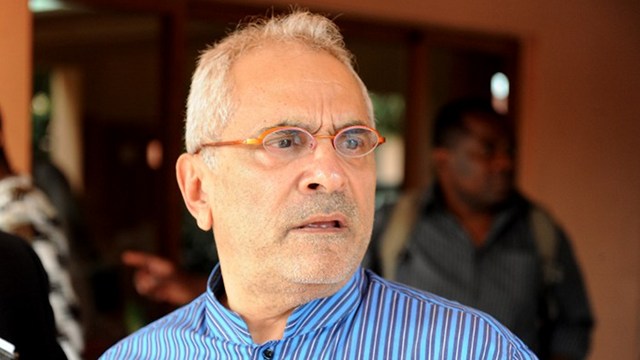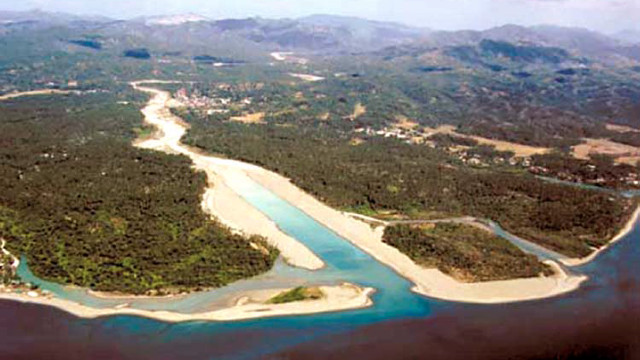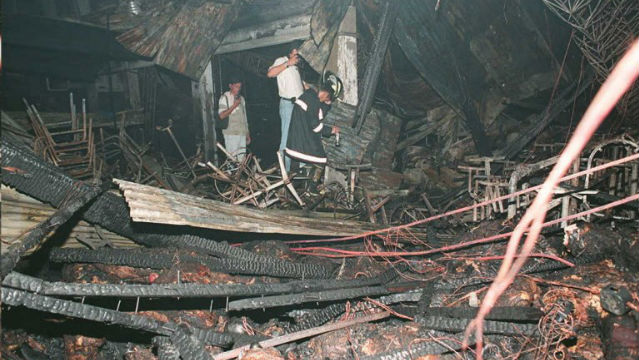
MANILA, Philippines (UPDATED) – 2015 marks the second year that the Philippines hosts the Asia-Pacific Economic Cooperation (APEC) summit.
This is in itself a big news event in the country, as it made headlines along with other hot issues of the year – the dispute in the West Philippine Sea territories, the laglag-bala scheme in the Ninoy Aquino International Airport, the countdown to the 2016 elections, and other political news.
It was 19 years ago – in 1996 – when the country hosted APEC for the first time. What happened back then and what big events made it to the headlines?
APEC-related
- Demonstration against demolitions
A few months before APEC, a huge number of slum dwellers in Manila walked to Malacañang Palace to protest the demolition of the city's shanties along the route of APEC delegates.
Protesters claimed they were being relocated in areas far from their jobs.
- PH as newest economic tiger
Within APEC week, publications such as Newsbreak and The Economist referred to the Philippines as the "newest economic tiger" in Asia – a big leap from being known as "the sick man of Asia."
According to these publications, the event was an opportunity for the Philippines to show off its economic achievements – from being dependent on the United States to being one of Asia's new tiger economies.
- Banning of East Timor's Horta

Nobel Peace Prize awardee and former East Timor president Jose Ramos-Horta was denied a visa to attend the Manila People's Forum on APEC.
According to reports, the visa denial was to prevent Horta from talking about the struggle of his people. He received the Nobel Peace Prize in 1996 for raising international awareness about the independence struggle of the East Timorese.
- Detention of Sri Lankan visitors
Due to the strict security imposed weeks before APEC, then president Fidel V. Ramos said that any action critical of the event will constitute “terrorism”.
As a result, 5 Sri Lankan workers and unionists who were on their way to the Manila People’s Forum were detained at the airport and were sent back a week before the official meetings began.
- Deployment of military batallion in Central Luzon
In preparation for the event, 9 military battalions were deployed all over Central Luzon – particularly in Zambales – where the week-long APEC meeting was scheduled.
This move was meant to ensure that the area was safe for the world leaders attending the event.
Non APEC-related
- Marcopper disaster

A major mining accident happened in March on the island of Marinduque when an estimated 3 million tons of leftover mine tailings leaked from the drainage of the Marcopper Mining Corporation and smothered the Boac River.
The accident caused muddy floodwater in some areas where 400 families had to evacuate. It also led to the contamination of drinking water and the death of some farm and aquatic animals.
- Ozone Disco tragedy

In March 1996, Ozone Disco in Quezon City opened its door for club-goers and students who wanted to celebrate the end of their semesters with its inviting 50% discount promo. Unfortunately, the supposed celebration became a tragedy as the club was razed, killing over 150 teenagers.
The incident raised awareness about proper fire safety prevention measures for establishments after investigators revealed the club was not fully equipped for fire incidents.
According to the National Fire Protection Association, the incident was the 7th worst club fire in the world.
- PH gov't-MNLF peace treaty

In August 1996, Misuari – on behalf of the Moro National Liberation Front (MNLF) – signed a peace agreement with the then Ramos government which authorized the group to possess some autonomy and economic control in the Autonomous Region in Muslim Mindanao (ARMM).
It paved the way for Misuari to run unopposed as ARMM governor. His rule, however, ended after he led a failed rebellion against the government in November 2001.
- Onyok Velasco's silver Olympics medal win

During the 1996 Summer Olympics in the US, only one Filipino athlete successfully brought home a medal – boxer Mansueto "Onyok" Velasco. He was successful in the preliminary rounds of the light-flyweight category, but lost to a Bulgarian boxer in the battle for the gold medal.
After a successful boxing career, he became a celebrity and appeared in different comedy shows on television.
- PBA team Alaska's grand slam

The team Alaska Milkmen (now called Alaska Aces) made history in the Philippine Basketball Association (PBA) after getting a grand slam – winning 3 conference championships in a single season – in 1996.
In that year, team members were named as the season’s MVP (Johnny Abarrientos), Most Improved Player (Edwar Juinio), and Governor’s Cup Best Import (Sean Chambers).
The team wasn't able to repeat this record. The following year, they managed to defend their championship title only for the Governor's Cup (photographed above).
To date, the San Miguel Super Coffee Mixers are the latest grand slam title holders after sweeping all the conference championships in the 2013-2014 season.
- OFW Sarah Balabagan's release from prison

Balabagan was released from imprisonment in the United Arab Emirates after she was sentenced to death for killing her Arab employer in 1994. She was only 15 years old when the murder was committed, and claimed she acted in self-defense after her employer tried to rape her.
The sentence triggered an international outcry which persuaded the family of the victim to drop their execution demand in exchange for blood money.
She retured to the country in the same year. Her experience was reenacted in a film released the following year. – Rappler.com
Sources: aparchive.com, cpcabrisbane.org, stanford.edu, prrm.org, brittannica.com, boxrec.com, other news websites
Ronnie Punzalan is a Rappler intern.